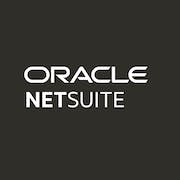Streamline your logistics operations with our comprehensive software buyer's guide. Discover top solutions and maximize efficiency. Start now!
Logistics management is more critical than ever. With supply chains becoming increasingly complex, businesses require a reliable logistics software solution that streamlines their operations, improves visibility, and reduces costs. Whether you're a small or large business, choosing the right logistics software can mean the difference between achieving industry success or struggling to keep up with the competition. In this guide, we'll explore the key features and benefits of this technology, what to look for in a provider, and how to ensure a smooth implementation process. By the end, you'll be equipped with all the necessary knowledge to make an informed decision that will help your business thrive.
What is logistics software?
This is a specialized computer program used to manage the transportation and inventory activities of companies. This type of software helps businesses optimize their supply chain management and improve efficiency. Common use cases for this technology include inventory management, order tracking, shipping and delivery management, and route planning. Additionally, it can be used for warehouse management, procurement management, and demand forecasting. A wide range of companies can benefit from utilizing it, including manufacturing companies, retail businesses, distributors, and transportation companies. By using one, businesses can reduce costs, minimize delays, and improve customer satisfaction. Overall, logistics software is an indispensable tool for modern business management, and its value will only increase with the growth of global commerce and e-commerce.
What are the benefits of implementing a logistics program?
Effective logistics management is a key factor in determining the success of any enterprise. For companies that transport goods or manage large inventories, a logistics application is an essential tool to streamline operations and improve efficiency. Here are some of its main benefits:
- Increased efficiency: With logistics software, businesses can automate many of their processes, such as inventory management, shipment tracking, and route planning. By doing so, they can significantly reduce the time and resources required to fulfill orders, leading to greater productivity and cost savings.
- Better customer service: It enables businesses to provide real-time updates on the status of shipments, delivery times, and inventory availability. This level of transparency not only enhances customer satisfaction but also helps to build long-term relationships with clients. Additionally, according to a recent survey, 70% believe that logistics management software is a key driver for quality customer service. This statistic underscores the importance of investing in such software to meet customer expectations and maintain a competitive edge in today's market.
- Improved inventory management: A logistics system provides real-time visibility of inventory levels, enabling businesses to optimize their stock levels, reduce losses from overstocking or understocking, and minimize the costs associated with storing excess inventory.
- Enhanced data management: The software captures vast amounts of data on everything from delivery routes and transport costs to inventory levels and customer preferences. By analyzing this data, businesses can gain valuable insights into their operations, identify areas for improvement, and make data-driven decisions.
- Reduced operating costs: By automating many of their processes, companies can reduce their operating costs and improve profitability. Additionally, logistics software can help businesses to optimize their delivery routes, reduce fuel costs, and eliminate unnecessary expenses.
By automating many of their processes, businesses can focus on their core competencies and leave the complexities of logistics management to the experts.
10 key features of logistics software
This essential tool comes with a wide range of features that make it an indispensable resource for logistics managers. In this section, we will explore its top 10 features:
1. Inventory management:
A logistics platform enables businesses to manage their inventory levels more efficiently by providing accurate real-time data on stock levels, location, and movements.
2. Order processing:
With logistics software, businesses can automate their order processing, from receiving orders to shipping and delivery, reducing manual data entry, and reducing errors.
3. Freight management:
It enables logistics managers to manage their entire freight and transportation operations, from shipment planning to carrier selection and delivery scheduling.
4. Real-time tracking:
It also enables businesses to track their shipments in real-time, receiving alerts and notifications on expected delivery times, delays, and any issues that arise.
5. Warehouse management:
This tool offers a variety of warehouse management features, including inventory tracking, order processing, and shipping management, which provide businesses with greater efficiency, accuracy, and control.
6. Data analytics:
A logistics system offers businesses the ability to analyze and report on their logistics operations, providing insights into the effectiveness of their processes and identifying areas for improvement.
7. Collaboration and communication:
Logistics software provides collaboration and communication tools that enable teams to work efficiently together and provide clear communication to stakeholders, eliminating communication breakdowns and reducing delays.
8. Customization and integration:
It can be tailored to meet the specific needs of businesses and integrated with other systems already in place, offering increased flexibility and efficiency.
9. Cost management:
It enables businesses to manage their logistics costs, tracking expenses, identifying areas to reduce costs, and ensuring invoices are accurate.
10. Compliance:
It offers features to help businesses comply with regulations and standards, such as customs and border protection, food safety, hazardous materials, and environmental standards.
Logistics software provides businesses with a range of features that enable them to optimize their logistics operations, providing greater efficiency, accuracy, and control over their supply chain management processes. Its various features are tailored to meet the different needs of businesses, and it is an essential tool for modern logistics managers.
What to consider when adopting a logistics platform?
This program has become increasingly popular among businesses of all sizes however, with a wide range of options on the market, businesses must carefully consider several factors before making a purchase decision.
- Firstly, consider the features of the software and how they can benefit your business. Some solutions are designed for specific industries, while others are more general. Consider whether it offers real-time tracking of shipments, advanced reporting capabilities, and the ability to integrate with other systems, such as an ERP. Additionally, make sure that the app is user-friendly and can be incorporated into your existing workflow.
- Secondly, look at the implementation process. The vendor of the software should provide appropriate support throughout every stage, from integration with other systems to the actual use of the app. If your business is heavily reliant on technology, ensure that the vendor can provide technical support and has a fast response time.
- Thirdly, consider the cost of the solution. The costs can vary depending on the features, services, and customizations that you require. Consider whether you need a one-time payment or prefer a subscription-based model. Evaluate the upfront and recurring costs of the software, keeping in mind the long-term benefit it can provide.
- Lastly, consider its scalability. Your business may experience growth over time, so you want one that can keep up with the increasing demands. Make sure that it is flexible and can adapt to future changes in your business.
Purchasing logistics software requires careful consideration. Businesses should evaluate all the above elements before making a purchase decision. Remember that no single solution is one-size-fits-all, so take the time to select the one that best meets the specific needs of your organization.
Industry trends for logistics software
The logistics industry has experienced significant growth and innovation in recent years, and it shows no signs of slowing down anytime soon. With the rise of technology and increased demand for faster, more efficient supply chain processes, logistics software has become a critical part of modern supply chain management. Reports from leading market research companies state that logistic digitalizing is one of the top 10 trends transforming the global market. Here are some of its biggest trends that are shaping the industry this year and beyond:
#1. Artificial Intelligence (AI) and Machine Learning (ML)
These innovative technologies are being used to develop predictive analysis tools for demand forecasting, reduce human error, and automate repetitive logistics tasks.
#2. Robotic Process Automation (RPA)
The use of RPA has expanded exponentially over the past few years, and logistics businesses are now using robots to automate warehouse processes, increasing efficiency and productivity.
#3. Cloud-based logistics management
Cloud technology has become an essential component of logistics software to facilitate real-time data sharing, improve communication, and simplify logistics management.
#4. Blockchain
Blockchain technology offers an immutable ledger system, which can enhance trust, improve the security and transparency of the logistics supply chain, reduce costs, and optimize logistics performance.
#5. Electronic logging devices (ELD)
ELDs are now mandatory for commercial trucks, and it is expected that this trend will continue in the coming years, improving driver safety and reducing fuel consumption.
Conclusion
To conclude, as the logistics sector continues to evolve, logistics software trends will play a vital role in helping logistics businesses keep pace and realize their full potential. By leveraging advancements in technology, companies can optimize their operations, improve efficiency, and enhance customer satisfaction. The integration of artificial intelligence, real-time data analytics, and automation in logistics software is transforming the industry, enabling businesses to respond swiftly to market demands and reduce operational costs. Therefore, staying abreast of these trends is crucial for companies aiming to maintain a competitive edge and achieve sustainable growth.









